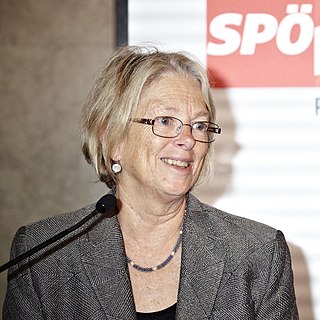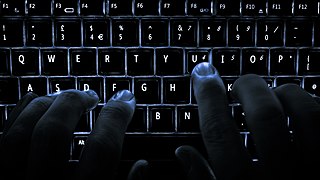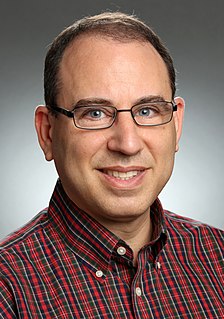
The Georgetown University Law Center is the law school of Georgetown University, a private research university in Washington, D.C. It was established in 1870 and is the largest law school in the United States by enrollment and the most applied to, receiving more full-time applications than any other law school in the country.

Arthur Raphael Miller, is a leading scholar in the field of American civil procedure and a University Professor at New York University and Chairman of The NYU Sports & Society Program.

Pamela Samuelson is the Richard M. Sherman '74 Distinguished Professor of Law and Information Management at the University of California, Berkeley with a joint appointment in the UC Berkeley School of Information and Boalt Hall, the School of Law.

Wendy Seltzer is an American attorney and a staff member at the World Wide Web Consortium, where she is the chair of the Improving Web Advertising Business Group. She was previously with Princeton's Center for Information Technology Policy. Seltzer is also a Fellow with Harvard's Berkman Center for Internet & Society, where she founded and leads the Lumen clearinghouse, which is aimed at helping Internet users to understand their rights in response to cease-and-desist threats related to intellectual property and other legal demands.

William Michael Treanor is an attorney and legal scholar. He is the dean of Georgetown University Law Center, the former dean of Fordham University School of Law, and an expert on constitutional law, having twice been cited in Supreme Court opinions. He continues to teach as a professor. Treanor held several high-profile government positions and he is an advocate of civil service. His teaching and work evidence Treanor's commitment to his philosophy of a complete legal education: "Intellectual excellence, the craft of lawyering, and dedication to public service."

Jessica Litman is a leading intellectual property scholar. She has been ranked as one of the most-cited U.S. law professors in the field of intellectual property/cyberlaw.
Sarah Beth Deutsch is an American attorney who was Vice President and Deputy General Counsel of the telecommunications company Verizon Communications until her retirement in 2015. Since leaving Verizon, she is a practicing attorney in the Washington, D.C. area handling copyright, trademark, privacy and internet policy issues.
The Columbia Institute for Tele-Information (CITI) is one of several research centers for Columbia Business School, focusing on strategy, management, and policy issues in telecommunications, computing, and electronic mass media. It aims to address the large and dynamic telecommunications and media industry that has expanded horizontally and vertically drive by technology, entrepreneurship and policy.

Marc Rotenberg is president and founder of the Center for AI and Digital Policy, an independent non-profit organization, incorporated in Washington, D.C. Rotenberg is the editor of The AI Policy Sourcebook, a member of the OECD Expert Group on AI, and helped draft the Universal Guidelines for AI. He teaches the GDPR and privacy law at Georgetown Law and is coauthor of Privacy Law and Society and The Privacy Law Sourcebook (2020). Rotenberg is a founding board member and former chair of the Public Interest Registry, which manages the .ORG domain.

Margaret Jane Radin is the Henry King Ransom Professor of Law, emerita, at the University of Michigan Law School by vocation, and a flutist by avocation. Radin has held law faculty positions at University of Toronto, University of Michigan, Stanford University, University of Southern California, and University of Oregon, and has been a faculty visitor at Harvard University, Princeton University, University of California at Berkeley, and New York University. Radin's best known scholarly work explores the basis and limits of property rights and contractual obligation. She has also contributed significantly to feminist legal theory, legal and political philosophy, and the evolution of law in the digital world. At the same time, she has continued to perform and study music.

Cyber ethics is the philosophic study of ethics pertaining to computers, encompassing user behavior and what computers are programmed to do, and how this affects individuals and society. For years, various governments have enacted regulations while organizations have defined policies about cyberethics.
Information technology law concerns the law of information technology, including computing and the internet. It is related to legal informatics, and governs the digital dissemination of both (digitized) information and software, information security and electronic commerce aspects and it has been described as "paper laws" for a "paperless environment". It raises specific issues of intellectual property in computing and online, contract law, privacy, freedom of expression, and jurisdiction.
Mary Wong is the vice president for strategic community operations, planning & engagement at ICANN. Prior to taking up a full-time position with ICANN, she was the founding director of the Franklin Pierce Center for Intellectual Property and a tenured professor at the University of New Hampshire in Concord, New Hampshire, U.S.A.

Anita LaFrance Allen is the Henry R. Silverman Professor of Law and professor of philosophy at the University of Pennsylvania Law School. She was formerly Vice Provost for Faculty from 2013 to 2020.
Stuart N. Brotman is an American government policymaker; university professor; management consultant; lawyer; author and editorial adviser; and non-profit organization executive. He has taught students from 42 countries in six separate disciplines — Communications, Journalism, Business, Law, International Relations and Public Policy. He also has advised private and public sector clients in more than 30 countries in five continents.

Institute for Information, Telecommunication and Media Law or ITM is a research & educational organisation located in Münster, North Rhine-Westphalia in Germany. All major research projects conducted by ITM are ordered by European Commission. Scientific Council of the Institute is presented by Prof. Dr.Dr. Gunnar Bender, Wilhelm Berneke, Jon Bing, Santiago Cavanillas, Herbert Fiedler, Heinz Lothar Grob, Fritjof Haft, Bernt Hugenholtz, Hans Jarass, Wolfgang Kilian, Miriam Meckel, Ernst-Joachim Mestmäcker, Ursula Nelles and other prominent scientists.
The Cyberspace Law and Policy Centre was a research and social justice centre at the University of New South Wales Faculty of Law in Sydney, Australia. It provided a focus for research, public interest advocacy and education on issues of law and policy arising from digital transactions in cyberspace. It ceased to operate sometime after mid-2016.

Eric Goldman is a law professor at Santa Clara University School of Law. He also co-directs the law school's High Tech Law Institute and co-supervises the law school's Privacy Law Certificate.
Jennifer L. Mnookin is an American legal scholar and academic leader, currently serving as Chancellor of the University of Wisconsin–Madison. A leading expert on the law of evidence and forensic science, she previously served as Dean of the UCLA School of Law, where she was David G. Price and Dallas P. Price Professor of Law. While at UCLA Law, she co-founded and co-directed the Program on Understanding Law, Science and Evidence. From 1998 to 2005, Mnookin was on the faculty of the University of Virginia School of Law, with one year (2002-03) spent as a visiting professor at Harvard Law School. She joined the faculty of UCLA Law in 2005, where she then served as vice dean for faculty and research from 2007–09, vice dean for external appointments and intellectual life from 2012–13, and dean from 2013-2022. On April 23, 2020, she was elected to the American Academy of Arts and Sciences. On May 16, 2022, the University of Wisconsin System Board of Regents announced they had unanimously chosen Mnookin to be the 30th chancellor of the University of Wisconsin–Madison. She took office on August 4, 2022.

Rebecca Tushnet is an American legal scholar. She serves as the Frank Stanton Professor of First Amendment Law at Harvard Law School. Her scholarship focuses on copyright, trademark, First Amendment, and false advertising.













